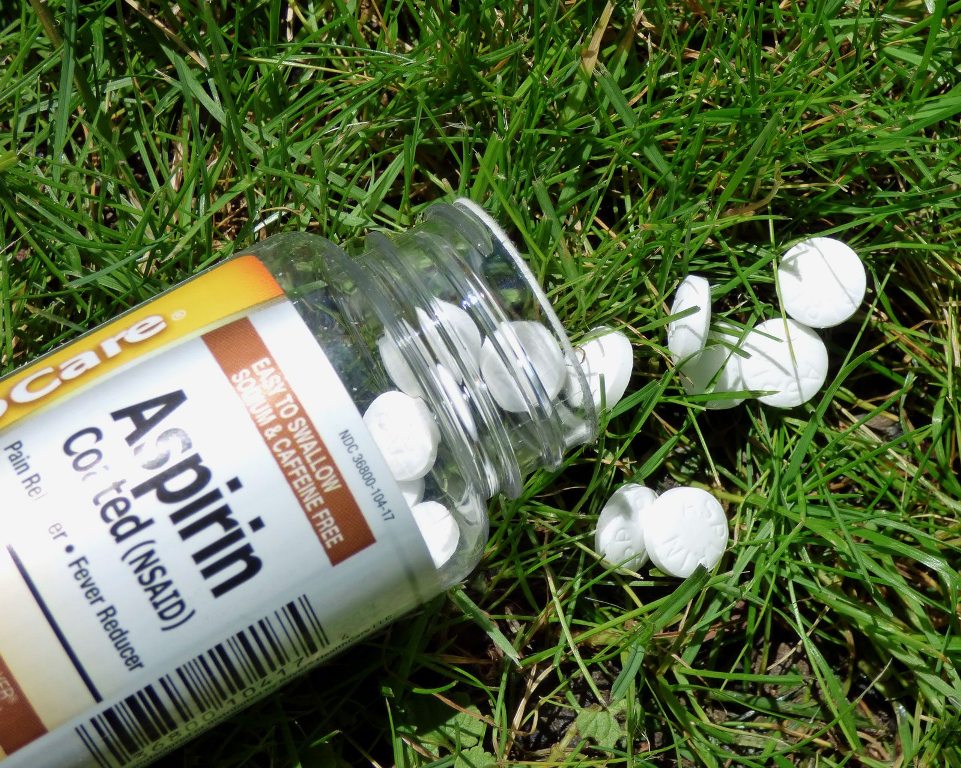If you are a gardener, you may wonder how you can increase the growth of your plant. Have you tried using Aspirin? Otherwise, read on and find out how Aspirin promotes plant growth.
What is Aspirin?
Aspirin is a drug called salicylate that helps relieve pain, fever, and inflammation. Due to its anti-inflammatory properties, it is ideal for people with joint pain. It is one of the first drugs in everyday use. It occurs in approximately 1,000 clinical trials each year, making it one of the world’s most studied medications.
It was the first name “aspirin” by the pharmaceutical company Bayer in 1899. And this name has survived since.
In 1950, it was named the most widely used pain reliever in the Guinness Book of World Records and had been a critical essential medicine ever since.
Different types of Aspirin can be used for various purposes. It is a standard tablet that can be swallowed whole, a chewable aspirin, or a soluble version that dissolves in water and is drunk.
The theory behind Aspirin for Plant Growth
Aspirin is very beneficial for plant growth. It is because plants release salicylic acid in reduced amounts when under pressure. It helps plants cope when they are dry, malnourished, or infested with insects. Aspirin strengthens the immune system of the plant.
If Aspirin is used in orchards, it can help improve the yield and size of the plant.
A dilute aqueous solution of Aspirin protects plants from pests and diseases. It also speeds germination.
Besides, Aspirin prolongs the life of flowers, and the plant releases a hormone that can lead to death when cut.
Gardeners from the University of Rhode Island sprayed an aspirin water mixture on the garden plants, which had successful results as the plants grew faster. A team of gardeners mixed three aspirins in 4 liters of water. Using Aspirin in the garden may produce better plants than control plants.
Benefits of Using Aspirin for Plant Growth
Here are the benefits of using Aspirin in plants for growth:
Keeps the fresh plant longer
When you cut plants and fill them with water in pots, they usually start to rot quickly. However, if you put an aspirin tablet in a jar, the flowers will stay fresh for four days.
Suitable for cutting and breeding plants
Aspirin is beneficial for increasing plant growth, but it is also believed to be great for plant propagation in the garden. Take an uncoated aspirin tablet and mix it in a glass of water. The water you are using must be distilled. After preparing the solution, soak the cut plants in the solution. Soak a few hours before planting in the ground.
It helps fight fungal diseases
If your plant is infested with fungi, you must treat it with an aspirin solution. You all know that plants suffer from fungal infections such as verticillium and fusarium—Spray Aspirin on your plants to prevent the growth of these fungi in your body.
Helps improve seed germination
If you spray water with Aspirin on plants planted in the ground, seed germination increases. One of these researches was carried out by a girl named Martha. Scientists at the Department of Agriculture are trying to figure out how plants that secrete salicylic acid create a defense mechanism against fungi, viruses, and bacteria.
Increases productivity and plant growth
If you regularly spray your plants with Aspirin, your garden will be full of fresh, happy flowers. One study found that treated plants can produce more fruit than untreated plants. Aspirin has been found that it is rich in vitamin C and promotes plant growth.
Side effects of Using Aspirin
After answering an important question (Aspirin promotes plant growth), another question arises. You can find out if there are disadvantages to using Aspirin in plants. Unfortunately, there is only one small problem. Too much Aspirin can cause brown spots on the leaves or parts of the plant that may appear burnt.
If it is the case, you can quickly fix it by removing the part and stopping the use of Aspirin.
Also, remove weeds and small plants or unnecessary herbs growing around the plants. As crucial as Aspirin is, if there are other external problems, such as small insects in the soil and weeds, plants may not thrive and increase.
How to use Aspirin in the garden
Dissolve three aspirins in 4 liters of water. Let it settle for a few minutes so that it dissolves completely and does not stay in the water. Add liquid detergent and mix gently.
Pour the prepared mixture into the garden sprayer. If you find that the Aspirin has not completely dissolved, wait a few minutes; otherwise, close the showerhead.
Spray this mixture with some or all the plants approximately once a month and cover the stems and leaves. Wait until late in the morning for the dew evaporation of the plants will help.
Water the roots with the mixture simultaneously and water generously around the base of the plants. Repeat this monthly as a spray.
What plants does Aspirin work best on?
All shade plants such as eggplants, peppers, potatoes, or tomatoes respond best to this treatment.
Because of its mass production, Aspirin is an inexpensive drug. Using this over-the-counter medicine in your garden can be more comfortable and cheaper than plant-based foods or specialty fertilizers. If you follow the instructions, you can reduce the risk of plant damage and strengthen flora and fauna in your garden.
Final Thought
The next time you are in the garden, and your lawn looks soft, and your flowers need to be filled, bring a first aid kit instead of fertilizer or compost heap.



